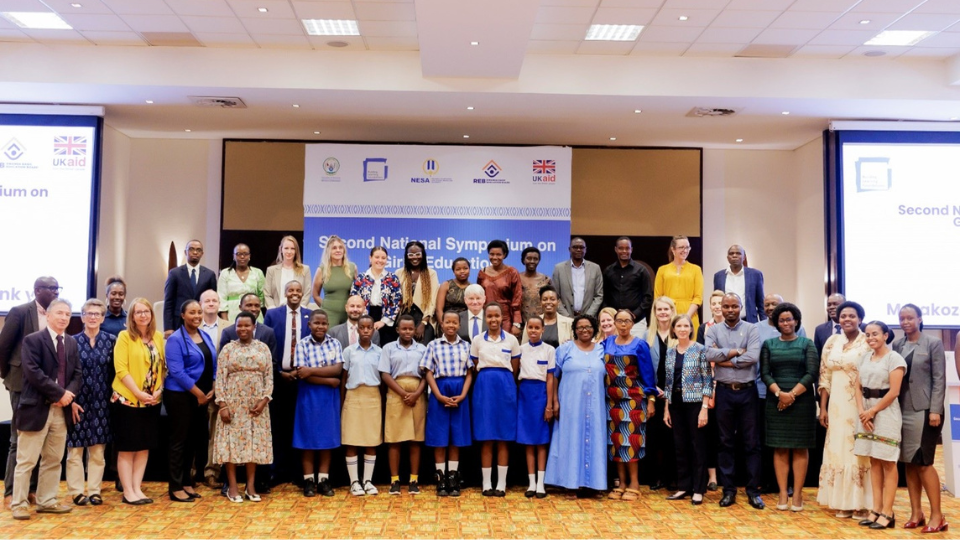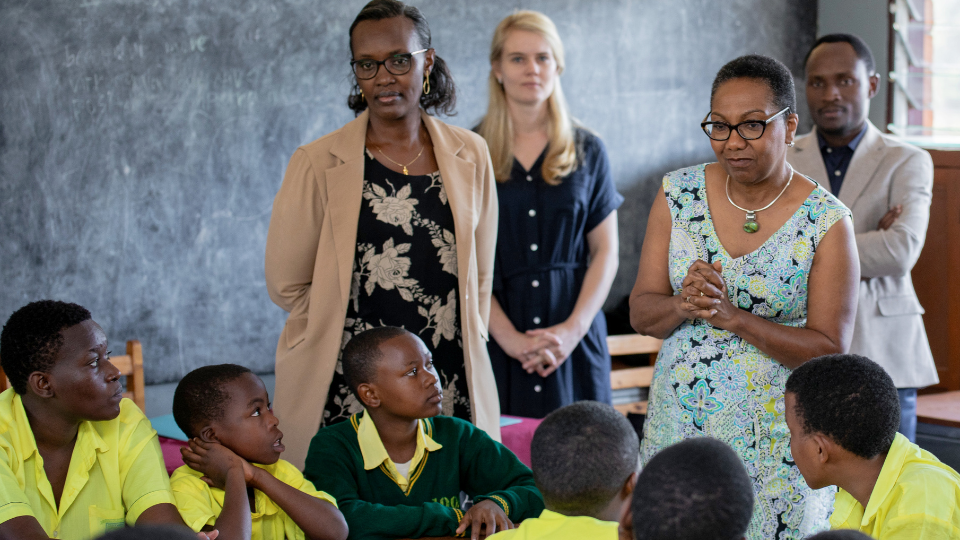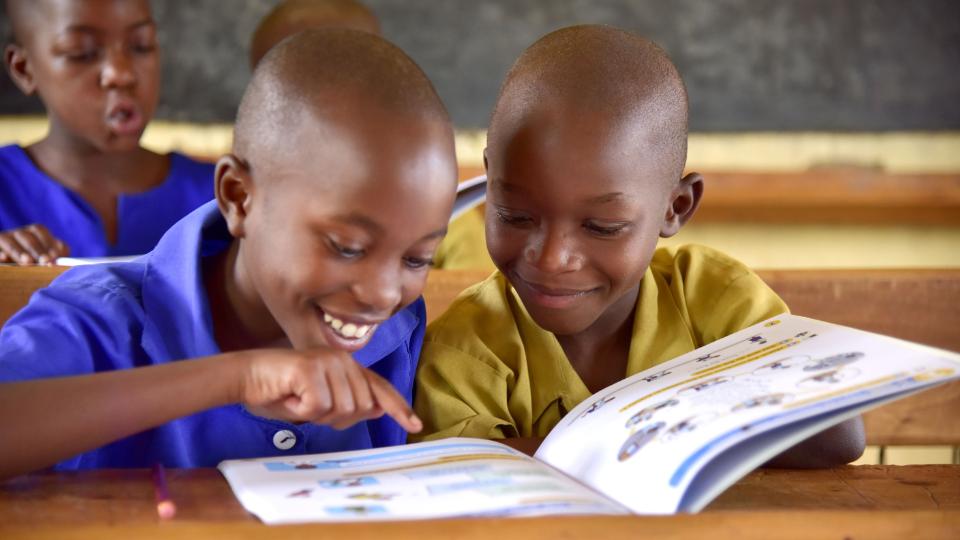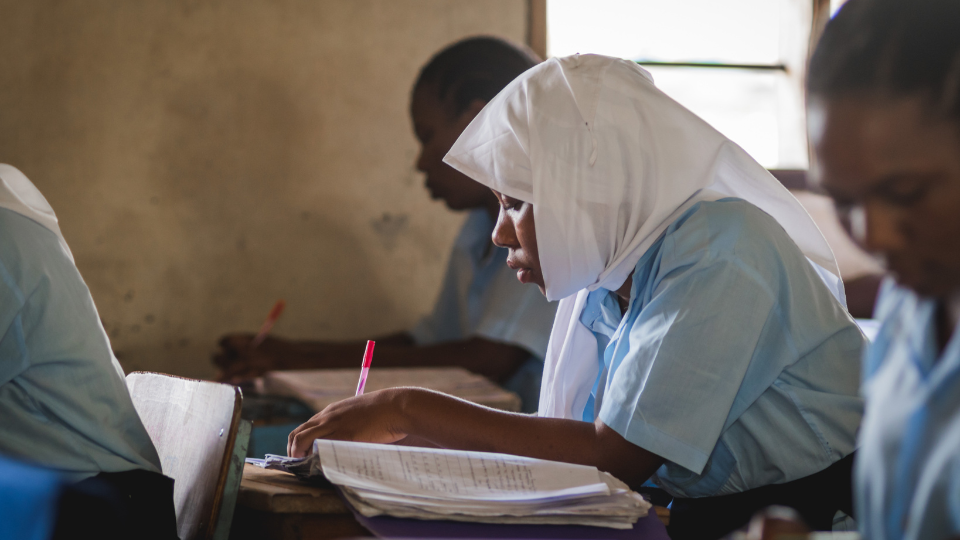The severity of the learning crisis around the world is clear for all to see. Even before Covid-19 hit, 258 million children of primary and secondary school age were out of the school and the learning poverty rate in low- and middle-income countries was 53% – meaning that over half of all ten-year-old children could not read and understand a simple text. In Sub-Saharan Africa, the figure was closer to 90%.[1] Educationalists around the world, including Education Development Trust, point to the lack of quality teaching and learning as one of the main causes of the learning crisis for boys and girls alike. However, by isolating what happens in the classroom from all other well-known barriers to girls’ learning, we notice that girls also experience a host of pedagogy-related challenges that further hinder their ability to learn and thrive in school. Teaching and learning methods, materials, language, school, classroom and behaviour management approaches and curricula can all consciously or unconsciously reinforce gender stereotypes that disadvantage girls and negatively affect their ability to learn. It is therefore critically important for all practitioners to focus on improving the quality of pedagogy for learning and equity to ensure that all boys and girls can reach their full potential.
In response to this need, we work with actors at all levels of the education system. Here, we detail our approach.
System-level change
At the system level, our learning partnership approach to working with governments enable us to act as critical friends. We raise awareness of the importance, relevance and usefulness of gender disaggregated data for policymaking and to influence behaviour change. In Rwanda, through our Building Learning Foundations (BLF) programme, we worked with the Ministry of Education (MINEDUC), Rwanda Basic Education Board (REB) and National Examination and School Inspection Authority (NESA) to develop systems to improve the collection, analysis and use of disaggregated learning data. The data was collected through our formative assessments. Drawing insights from the data on achievement gaps, we were able to support national policymakers in planning the national remediation programme to target those most in need.
Given their central role in supporting school improvement, local and regional government officers are our partners in delivering and sustaining gender-responsive practices in schools. In Kenya and Rwanda, they receive our gender-responsive pedagogy training and work side-by- side with our teachers and school leaders to improve learning.
School- and classroom-level interventions
At the school level, we collect and analyse data to understand gendered barriers to access to, participation of, performance in and completion of education, as well as transitions to secondary education. We use this to inform gender-responsive whole-school approaches to improving learning and equity. Our leadership for learning offer builds capacity of leaders to develop their instructional leadership skills, enabling them to:
1) Recognise, challenge and avoid teaching which reinforces gender bias and stereotyping
2) Build safe environments and support teachers with alternative behaviour management approaches.
In Ethiopia, through our TARGET programme, we are scaling up a programme of leadership for learning which explicitly develops the skills and competencies required for leaders to establish and develop gender-responsive and inclusive schools – all in partnership with local Woreda (area) officers. The practice-based professional development (including training, coaching, collaborative learning) supports leaders to contextualise their approaches based on the known local barriers and challenges faced by girls in pastoralist communities or those living in fragile, conflict-affected areas. In Rwanda, our school leadership training on Gender Equity and Social Inclusion is delivered via peer learning networks and by identifying and supporting local and national leaders of learning to become champions of the agenda in their local areas.
At the classroom level, we use gender-responsive diagnostic tools to develop our understanding of the specific barriers to individual children learning – and support teachers to adjust their teaching accordingly. In Kenya, in our Girls Education Challenge programme, we use our tailored formative assessment process to identify gaps in learning and understand the specific challenges faced by girls in the classroom. The findings feed into collaborative reflection practices between teachers and school leaders informing teaching improvement and individualised learning plans, including catch-up and remediation support for those girls and boys who are struggling the most. Our Rapid Assessment Study, conducted in March 2021, showed low or even no learning loss for our beneficiary girls.
Equipping key actors to engender change
Our approach to teacher professional development, consisting of practice-based training, self- and collaborative reflection, is rooted in the belief that girls and boys should be treated fairly and supported to learn according to their needs. For example, our gender-responsive Teacher Practice Tool, which sets the standards for what we define as quality pedagogy for all our programmes, plots a clear pathway to improve learning regardless of the starting point. This is evident in our work in Sierra Leone (in partnership with UNICEF), where we are supporting teachers to improve their skills in the teaching and learning of literacy and numeracy. By focusing on improving the quality of pedagogy for all children from a low baseline, we are introducing the concepts of fairness and raising expectations for girls and ensuring that gender stereotypes and biases are noticed and not reinforced.
We also believe it is important to equip policymakers and practitioners with practical materials to support them in their roles as relates to achieving good quality pedagogy for learning and equity. We do so through the development and use of resources including learner materials, teaching materials, manuals and guides for leaders, as well as policy briefs and strategy documents for local and national government officials. Our Connected Learning Centre in London designs teaching and learning materials for computer science and computational thinking based on the known differences in how girls and boys engage with and learn through technology, sometimes separating boys and girls where there is pedagogical value in doing so. Similarly, as part of our work in supporting both girls and boys to transition out of school into higher education and/or technical and vocational activities, we developed an ‘unconscious bias toolkit’ to equip teachers to be more inclusive in the way they talk about careers education and planning with all learners.
Gender-responsive pedagogy is one very important element of our holistic approach to empowering girls through quality teaching and learning – but it is not the only one. We offer a suite of tools and methods to engage with and influence communities and parents. For example, in Kenya and Rwanda, we are working with local community groups and parents to build awareness of the value of girls’ education and empower them to hold schools to account at the local level. We work across sectors with experts in health, social care and WASH to deliver a package of interventions that meet all the needs of boys and girls in a holistic way. For example, in Kenya, we work with Community Health Volunteers to disseminate messages and provide girls and their families with sexual and reproductive health support. We engage with youth and local champions (for instance, in our work at the Connected Learning Centre), and develop low-, no- and high-tech solutions that enhance our reach and our impact. We work at all levels of education in low-, middle- and high-income countries and draw from this breadth of experience to leapfrog the change and innovate where we see greater potential for impact.
Gender-responsive pedagogy requires a combination of efforts by education officials at all levels: school leaders, teachers, students, and the wider community – especially parents and caregivers. Some considerations for teachers and school/classroom management approaches would be in vain if not coupled with tackling issues of violence against children in families. Therefore, families should be supported to deal with gender stereotypes that hinder their children's access to equitable education. This can be done with the support of school general assemblies/executive committees and other ad hoc events bringing together parents and the school community.
[1] World Bank (2021): https://www.worldbank.org/en/news/immersive-story/2021/01/22/urgent-effective-action-required-to-quell-the-impact-of-covid-19-on-education-worldwide






